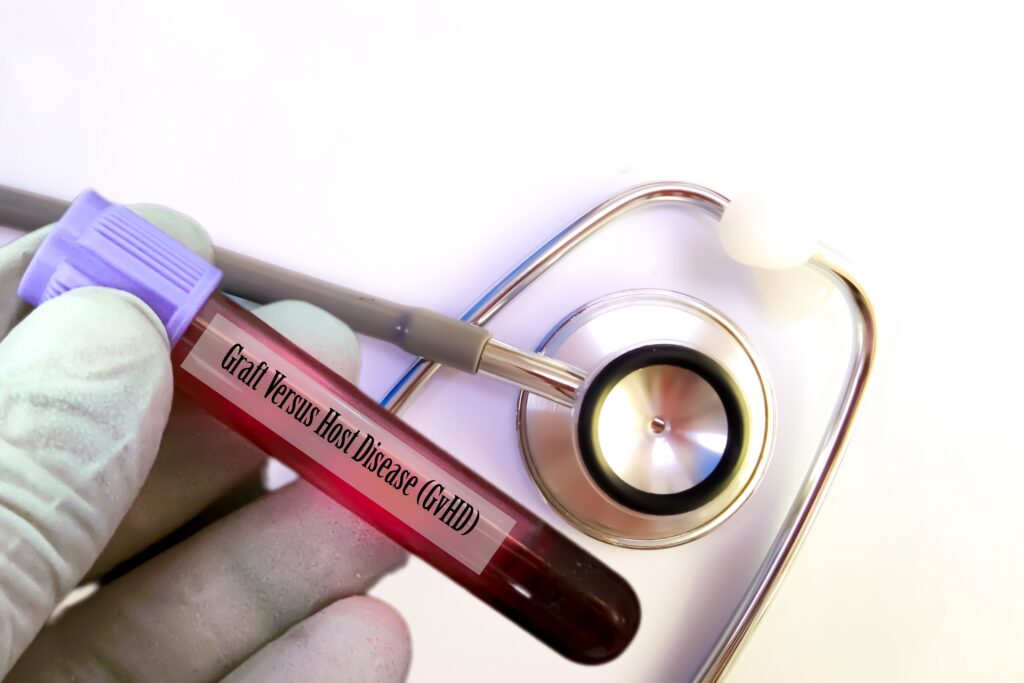Equillium announced encouraging topline results from its Phase III EQUATOR study evaluating itolizumab in combination with corticosteroids as a first-line treatment for patients with acute graft-versus-host disease (aGVHD).
The randomized, double-blind, placebo-controlled global trial assessed itolizumab in patients with newly diagnosed grade II-IV aGVHD.
While the trial data showed that itolizumab did not improve complete or overall response rates at Day 29, statistically significant and clinically meaningful benefit in longer-term outcomes were achieved. This included complete response at Day 99, duration of complete response and failure-free survival.
Itolizumab exhibited a favorable safety and tolerability profile. It did not increase the risk of clinical sequelae, including infection or sepsis, which are some of the main drivers of the high mortality associated with aGVHD.
“We are thrilled with the results from the EQUATOR study, which mark a major milestone in the development of itolizumab as a first-line treatment option for aGVHD,” said Bruce Steel, CEO of Equillium, in the company’s news release.
“These data support the potential for itolizumab to redefine the treatment paradigm and offer meaningful clinical benefit to patients who currently face limited options and poor outcomes.”
XTALKS WEBINAR: Enhancing mAb Platform Process using Membrane Affinity Chromatography for FIH Molecules
Live and On-Demand: Thursday, May 8, 2025, at 11am EDT (5pm CEST/EU-Central)
Register for this free webinar to learn how to enhance mAb purification, offering higher throughput and reduced processing times.
About aGVHD
aGVHD is a life-threatening complication of allogeneic hematopoietic stem cell transplantation (allo-HSCT). It occurs when immune cells from the donor perceive the host tissues as foreign and subsequently initiate an immune response against them.
Despite the use of corticosteroids as the standard first-line treatment, many patients fail to achieve a sustained response, leading to high rates of morbidity and mortality. One-year survival is as low as 40%.
Symptoms of GVHD include rash, itching, skin discoloration, nausea, vomiting, diarrhea and jaundice, as well as eye dryness and irritation.
GVHD is the leading cause of non-relapse mortality in cancer patients receiving allo-HSCT. The risk limits the number and type of patients who receive HSCT.
Related: Niktimvo (Axatilimab) Approved as First-in-Class Therapy for Chronic GVHD
More on Itolizumab’s Clinical Data
Itolizumab is a humanized anti-CD6 monoclonal antibody that targets the CD6-ALCAM pathway involved in T cell activation and trafficking.
It offers a differentiated mechanism of action that modulates the immune response without inducing broad immunosuppression.
“Patients with acute GVHD urgently need safer and more effective therapies,” said Dr. John Koreth, principal investigator of the EQUATOR study and an associate professor of medicine at Harvard Medical School.
“The addition of itolizumab to corticosteroids significantly improved early response rates and durability, which are critical predictors of long-term outcomes.”
In the trial, itolizumab treatment was associated with a favorable trend in overall survival compared to placebo. Lower mortality rates were observed in the itolizumab group (24.4%, 19 patients) versus the placebo group (32.5%, 25 patients).
Both treatment arms showed similar steroid tapering, primary disease relapse rates and chronic GVHD rates.
Equillium plans to submit the full results for presentation at an upcoming medical conference.
It also plans to start discussions with the FDA regarding a potential Biologics License Application (BLA) submission.
This includes meeting requests to discuss the potential for Accelerated Approval, with feedback expected during May 2025.
The treatment has received FDA Breakthrough Therapy designation
If approved, itolizumab could become the first biologic therapy approved for use in the first-line setting for acute GVHD. This could provide physicians and patients with a novel option to improve outcomes at the earliest stage of treatment.












Join or login to leave a comment
JOIN LOGIN